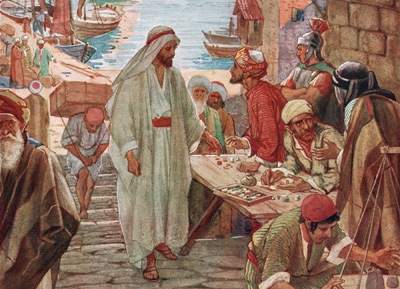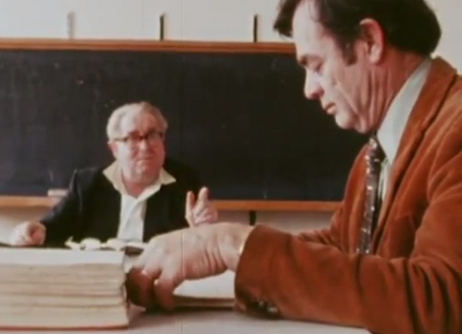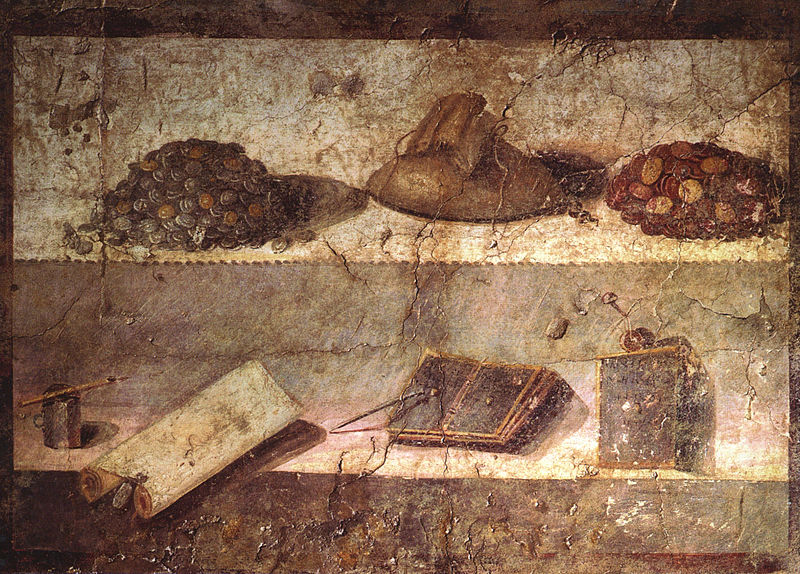Updated: 2 June 2020
While participating in a seminar on the Synoptic Gospels with David Flusser in 1978, Robert Lindsey noticed that there were important verbal and thematic links between the story of the toll collector whom Jesus called as his disciple (Luke 5:27-32) and the twin similes about how God rejoices whenever a sinner repents (Luke 15:1-10). Puzzled by the presence of the phrase οὐ χρείαν ἔχουσιν (“no need [they] have”), which appears in the Call of Levi story and in the Lost Sheep simile, it dawned upon Lindsey that the Lost Sheep and Lost Coin similes may originally have formed the conclusion of Jesus’ response to the criticism that he dined with toll collectors and sinners.
The realization that the Call of Levi story and the Lost Sheep and Lost Coin similes may once have formed a single literary unit was one of the most important breakthroughs Robert Lindsey ever achieved.[1] This breakthrough gave rise to Lindsey’s hypothesis that at a stage of literary transmission prior to the composition of the Synoptic Gospels, many of the parables were for some reason separated from their original narrative contexts. Despite the fragmentation of the stories that resulted from the removal of parables from their original narrative settings, the component pieces of the complete stories were not necessarily lost, only reshuffled. This meant that it might be possible by means of careful literary and linguistic analysis to reconstruct the “complete” stories from the fragmentary remains that are scattered throughout the Gospels of Luke, Mark and Matthew.
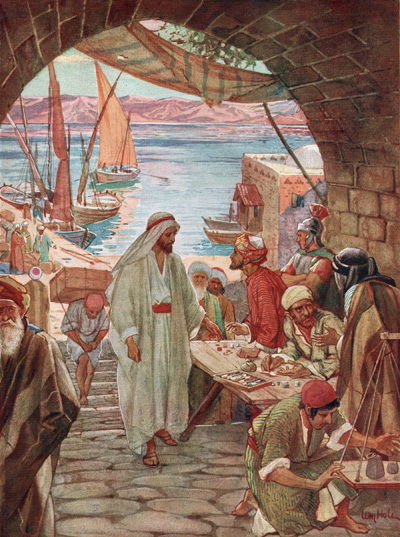
An artist’s depiction of the Call of Levi story by William Hole. Image courtesy of Wikimedia Commons.
In the “Yeshua and Levi the Toll Collector” complex we attempt to reconstruct the “complete” story of Levi’s call, the banquet Levi held in Jesus’ honor, the bemusement of the Pharisees over how a righteous man like Jesus could freely celebrate with sinners, and Jesus’ brilliant, humorous and compassionate response that when God recovers a lost sinner he wants all his friends to be there with him to celebrate.
Click on the following titles to view the Reconstruction and Commentary for each pericope in the “Yeshua and Levi the Toll Collector” complex.
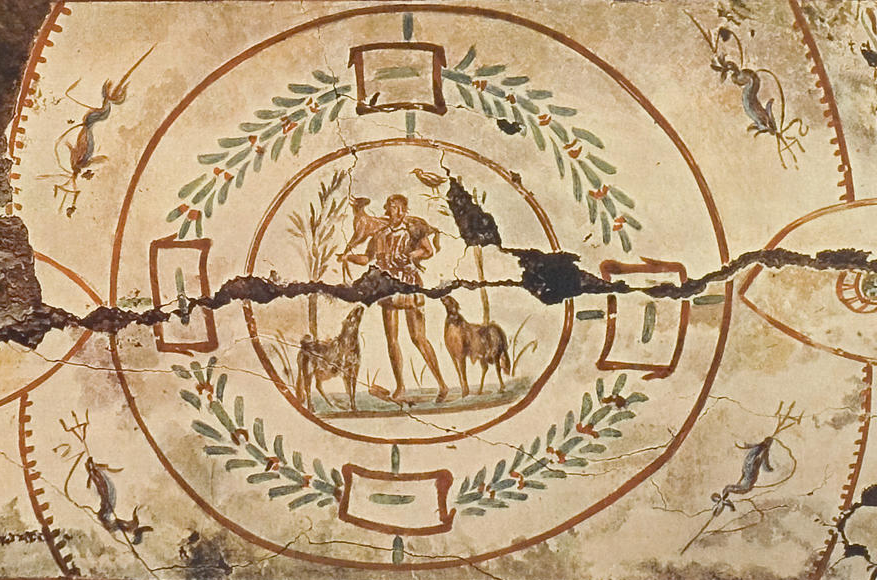 Lost Sheep and Lost Coin similes
Lost Sheep and Lost Coin similes
To demonstrate how the pieces of the “Yeshua and Levi the Toll Collector” complex fit together, we have assembled our paraphrases of the Hebrew reconstructions of the individual segments below. We have also assembled the Greek and Hebrew reconstructions of the entire complex and presented them following the English paraphrase.
Some time later, Yeshua went out and noticed a toll collector named Levi sitting at a toll house, and he said to Levi, “Follow me as my disciple!” So leaving everything behind, Levi got up and followed Yeshua.
Levi prepared a sumptuous banquet in honor of Yeshua. As Yeshua was eating in Levi’s home, a whole crowd of toll collectors and other sinners came to listen to him.
But the Pharisees and their leaders complained against his disciples by asking, “Why is he celebrating with toll collectors and other sinners?”
“Healthy people don’t need a doctor, but sick people do,” Yeshua replied. “[Instead of criticizing me, go find out what God meant when he said: Mercy is more desirable to me than sacrifice.] God sent me to invite sinners to repent, not righteous people.”
Then Yeshua told them this parable: “Imagine you have a hundred sheep and one of them strays from the flock. Won’t you leave the ninety-nine on the hills and go search for the one that got lost until you’ve found it? And when you’ve finally found it, won’t you carry it home on your shoulders and invite all your nearest and dearest and tell them: ‘Come celebrate with me! I’ve found my missing sheep!’?
“Yes! And I’ll tell you what: God rejoices over one sinner who repents even more than he does over ninety-nine righteous people who don’t need to repent.
“Or can you imagine a woman who has ten coins each worth a day’s wage, but she’s lost one of them? Won’t she light a lamp, sweep the house, and search until she’s found it? And when she’s finally found it, won’t she invite all her nearest and dearest and tell them: ‘Come celebrate with me! I’ve found the coin I lost!’?
“Yes! And I’ll tell you what: God has this kind of joyful celebration in the presence of the angels over every single sinner who repents.”
Greek Reconstruction
καὶ μετὰ ταῦτα ἐξῆλθεν καὶ ἐθεάσατο τελώνην καὶ ὄνομα αὐτῷ Λευεὶς καθήμενον ἐπὶ τὸ τελώνιον καὶ εἶπεν αὐτῷ ἀκολούθει μοι καὶ καταλιπὼν πάντα ἀναστὰς ἠκολούθησεν αὐτῷ καὶ ἐποίησεν Λευεὶς δοχὴν μεγάλην αὐτῷ καὶ ἐγένετο αὐτοῦ ἀνακειμένου ἐν τῇ οἰκίᾳ αὐτοῦ καὶ ἰδοὺ ὄχλος πολὺς τελωνῶν καὶ ἁμαρτωλῶν οἳ ἦσαν ἐλθόντες ἀκούειν αὐτοῦ καὶ ἐγόγγυζον οἱ Φαρεισαῖοι καὶ οἱ γραμματεῖς αὐτῶν πρὸς τοὺς μαθητὰς αὐτοῦ λέγοντες διὰ τί μετὰ τῶν τελωνῶν καὶ ἁμαρτωλῶν ἐσθίει καὶ πίνει καὶ ἀποκριθεὶς Ἰησοῦς εἶπεν πρὸς αὐτούς οὐ χρείαν ἔχουσιν οἱ ὑγιαίνοντες ἰατροῦ ἀλλὰ οἱ κακῶς ἔχοντες [πορευθέντες δὲ μάθετε τί ἐστιν ἔλεος θέλω καὶ οὐ θυσίαν] οὐκ ἦλθον καλέσαι δικαίους ἀλλὰ ἁμαρτωλοὺς εἰς μετάνοιαν
εἶπεν δὲ πρὸς αὐτοὺς τὴν παραβολὴν ταύτην λέγων τίς ἄνθρωπος ἐξ ὑμῶν ἔχων ἑκατὸν πρόβατα καὶ πλανηθῇ ἓν ἐξ αὐτῶν οὐχὶ καταλείπει τὰ ἐνενήκοντα ἐννέα ἐπὶ τὰ ὄρη καὶ πορευθεὶς ζητεῖ τὸ ἀπολωλὸς ἕως οὗ εὕρῃ αὐτό καὶ εὑρὼν αὐτὸ ἐπιτίθησιν ἐπὶ τοὺς ὤμους αὐτοῦ μετὰ χαρᾶς καὶ ἐλθὼν εἰς τὸν οἶκον συγκαλεῖ τοὺς φίλους καὶ τοὺς γείτονας λέγων αὐτοῖς συγχάρητέ μοι ὅτι εὗρον τὸ πρόβατόν μου τὸ ἀπολωλός ἀμὴν λέγω ὑμῖν ὅτι οὕτως γείνεται χαρὰ ἐν τοῖς οὐρανοῖς ἐπὶ ἑνὶ ἁμαρτωλῷ μετανοοῦντι ἢ ἐπὶ ἐνενήκοντα ἐννέα δικαίοις οἵτινες οὐ χρείαν ἔχουσιν μετανοίας
ἤ τίς γυνὴ ἔχουσα δέκα δηνάρια καὶ ἀπολέσῃ δηνάριον ἓν οὐχὶ ἅπτει λύχνον καὶ σαροῖ τὴν οἰκίαν καὶ ζητεῖ ἕως οὗ εὕρῃ αὐτό καὶ εὑροῦσα αὐτὸ συγκαλεῖ τὰς φίλας καὶ τὰς γείτονας λέγουσα αὐταῖς συγχάρητέ μοι ὅτι εὗρον τὸ δηνάριον ὃ ἀπώλεσα ἀμὴν λέγω ὑμῖν ὅτι οὕτως γείνεται χαρὰ ἐνώπιον τῶν ἀγγέλων τῶν οὐρανῶν ἐπὶ ἑνὶ ἁμαρτωλῷ μετανοοῦντι
Hebrew Reconstruction
וְאַחֲרֵי כֵן יָצָא וַיַּרְא מוֹכֵס וּשְׁמוֹ לֵוִי יוֹשֵׁב אֵצֶל בֵּית הַמֶּכֶס וַיֹּאמֶר לוֹ לֵךְ אַחֲרַי וַיַּנַּח אֶת הַכֹּל וַיָּקָם וַיֵּלֶךְ אַחֲרָיו וַיַּעַשׂ לֵוִי מִשְׁתֶּה גָדוֹל לוֹ וַיְהִי הוּא מֵסֵב בְּבֵיתוֹ וְהִנֵּה אֻכְלוּס גָּדוֹל שֶׁלְּמוֹכְסִים וּרְשָׁעִים שֶׁהָיוּ בָּאִים לִשְׁמוֹעַ לוֹ וַיִּלּוֹנוּ הַפְּרוּשִׁים וְסוֹפְרֵיהֶם עַל תַּלְמִידָיו לֵאמֹר לָמָּה עִם הַמּוֹכְסִים וְהָרְשָׁעִים הוּא אוֹכֵל וְשׁוֹתֶה וַיַּעַן יֵשׁוּעַ וַיֹּאמֶר לָהֶם אֵין צוֹרֶךְ לַבְּרִיאִים בְּרוֹפֵא אֶלָּא לַחֹלִים [לְכוּ וְלִמְדוּ מָה הוּא חֶסֶד חָפַצְתִּי וְלֹא זָבַח] לֹא בָּאתִּי לִקְרֹוא לַצַּדִּיקִים אֶלָּא לָרְשָׁעִים לִתְשׁוּבָה
וַיִּמְשׁוֹל לָהֶם אֶת הַמָּשָׁל הַזֶּה לֵאמֹר מִי אָדָם בָּכֶם שֶׁיֵּשׁ לוֹ מֵאָה צֹאן וְנִדַּחַת אַחַת מֵהֶן הֲלֹא יַנִּיחַ אֶת הַתִּשְׁעִים וְתִשְׁעָה עַל הֶהָרִים וְיֵלֵךְ וִיבַקֵּשׁ אֶת הָאֹבֶדֶת עַד שֶׁיִּמְצָא אֹתָה וּכְשֶׁהוּא מוֹצֵא אֹתָה שָׂם עַל כְּתֵפוֹ בְּשִׂמְחָה וּבָא לְבֵיתוֹ וְקֹרֵא לְאוֹהֲבָיו וְלִקְרוֹבָיו לוֹמַר לָהֶם שִׂמְחוּ עִמִּי שֶׁמָּצָאתִי אֶת הַשֶּׂה שֶׁלִּי הָאֹבֶדֶת אָמֵן אֲנִי אֹמֵר לָכֶם כָּךְ יֵשׁ שִׂמְחָה בַּשָּׁמַיִם עַל רָשָׁע אֶחָד שֶׁעֹשֶׂה תְּשׁוּבָה מֵעַל תִּשְׁעִים וְתִשְׁעָה צַדִּיקִים שֶׁאֵין לָהֶם צוֹרֶךְ בִּתְשׁוּבָה
וּמִי אִישָׁה שֶׁיֵּשׁ לָה עֲשָׂרָה דִּינָרִים וְהִיא מְאַבֶּדֶת דִּינָר אֶחָד הֲלֹא תַּדְלִיק נֵר וּתְכַבֵּד אֶת הַבַּיִת וּתְבַקֵּשׁ עַד שֶׁתִּמְצָא אֹתוֹ וּכְשֶׁהִיא מֹצֵאת אֹתוֹ קֹרֵאת לְאוֹהֲבוֹתֶיהָ וְלִקְרוֹבוֹתֶיהָ לוֹמַר לָהֶן שְׂמַחְנָה עִמִּי שֶׁמָּצָאתִי אֶת הַדִּינָר שֶׁאִבַּדְתִּי אָמֵן אֲנִי אֹמֵר לָכֶם כָּךְ יֵשׁ שִׂמְחָה לִפְנֵי מַלְאֲכֵי שָׁמַיִם עַל רָשָׁע אֶחָד שֶׁעֹשֵׂה תְּשׁוּבָה
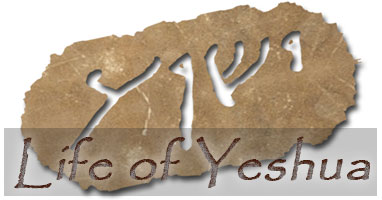 Click here to return to The Life of Yeshua: A Suggested Reconstruction main page.
_______________________________________________________
Click here to return to The Life of Yeshua: A Suggested Reconstruction main page.
_______________________________________________________
- [1] For the date of Lindsey’s discovery, see LHNS, 135. An account of this discovery is found in Robert L. Lindsey, “From Luke to Mark to Matthew: A Discussion of the Sources of Markan ‘Pick-ups’ and the Use of a Basic Non-canonical Source by All the Synoptists,” under the subheading “Restoration of Narrative-Sayings Complexes.” See also, idem, “Jesus’ Twin Parables,” under the subheading “The Full ‘Call of Levi’ Story.” ↩

